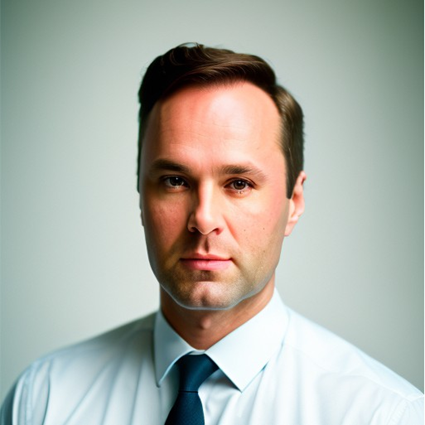
Over the last few decades, the asset management industry has grown significantly in both its scope and complexity. The diversity of fund designs and exposure to underlying asset classes has risen to meet investor expectations for a wide range of products offered globally. Blockchain in wealth management may be the solution to many of the industry’s needs.
The core idea behind blockchain for digital assets is the development of distinctive digital representations of assets that go beyond conventional financial instruments and allow you to trade any sort of asset more quickly, liquidly, and affordably.
It is an effective tool for organisations since it makes use of a shared, immutable ledger that can only be read by authorised individuals.
Cryptocurrencies play an important role in a blockchain and the network that supports it. Blockchain is a distributed ledger, which is a database used by many people to store data. Encryption technologies protect data within the blockchain.
Crypto, blockchain technology and wealth management
Using a cryptocurrency like Bitcoin (BTC), which functions as money and a means of payment independent of any one person, group, or entity, eliminates the need for third parties to be involved in financial transactions.
It is offered to blockchain miners as payment for their efforts in confirming transactions, and it can be purchased on many different sites.
How well do you really know your competitors?
Access the most comprehensive Company Profiles on the market, powered by GlobalData. Save hours of research. Gain competitive edge.

Thank you!
Your download email will arrive shortly
Not ready to buy yet? Download a free sample
We are confident about the unique quality of our Company Profiles. However, we want you to make the most beneficial decision for your business, so we offer a free sample that you can download by submitting the below form
By GlobalDataA fully authorised private bank, Xapo Bank blends conventional banking with the usefulness of Bitcoin and stablecoins.
Seamus Rocca, CEO, and director of Xapo Bank, explains how his organisation is contributing to the financial industry’s transition, as well as what the future holds for private banks that are embracing bitcoin.
Speaking to PBI, he says: “One unique feature of Bitcoin, no other blockchain in the world is as powerful and secure as the Bitcoin blockchain.
“The second element of it, which is interesting is the fact that there will only ever be 21 million Bitcoin which means that unlike money, where central banks and governments can decide to print more money for whatever fiscal or macroeconomic reason, the scarcity of Bitcoin means that it makes it quite a unique store of value.
“And the third unique feature of Bitcoin is the fact that it is sovereign as in, you can trust the code as opposed to having to trust politicians or central banks or, or governments. The fact that the ledger is inherent in the code itself means that no government or politician can wake up one morning and decide that they are going to alter the way that Bitcoin works, I am going to issue more Bitcoins or change the fee structure.”
Xapo Bank key offerings
Since the beginning of the blockchain, industries have identified its potential to change services.
Rocca continues: ‘‘The first key element is we started off as a Bitcoin custodian. At one point, we had 900,000 bitcoins in our vaults. We have proof of reserves; and we have got a large record of 26,000 bitcoins of our own capital that helps us protect customers Bitcoin. So, from our perspective, that the first thing I would say about Xapo is people know us as a safe place to keep your Bitcoin.
“The second thing to know about Xapo is we have built a bank, next to that safe place to keep your Bitcoin, that allows you to interact between Bitcoin and traditional financial services at dollar deposit accounts sending and receiving payments or debit card interest in a seamless way.
“The third is we are an offshore proposition which means that anybody in the world can open up an account at Xapo. Of course, we have restrictions around certain countries, and we do not serve the US, but we serve the rest of the world from Gibraltar. So, it is very much almost like the Swiss offshore banking model.”
One of Xapo Bank’s objectives in dealing with cryptocurrencies is to “leverage the use cases of Bitcoin and other cryptocurrencies, but bridges with a traditional bank, where you can receive and send money, have a card, earn interest, and you can trust it because it has capital and is well-run and regulated”.
Xapo Bank fills this gap by enabling you to use that cryptocurrency for transactions, storage, and wealth growth.
Blockchain and/or smart contract technology are used by digital assets to symbolise a digital form of value, carry out a function, or encourage specific conduct.
These assets are created using code that establishes rules for every element of their possession, use, and economic worth.
‘‘Bitcoin is now sort of a well-regarded asset class. It is being open to the institutional space. The reality is the retail space also has a need for a bank that understands crypto, and understands that normal people like you and me, want to be able to engage with Bitcoin and crypto safely with a bank that they trust. That is where Xapo Bank comes in,’’ adds Rocca.
Cryptocurrencies and tokens are two subcategories of digital assets that can be distinguished. Digital assets called tokens that are built on smart contracts can serve a wide range of purposes.
These adoptions and use cases are being aided by Xapo Bank.
An offshore $1 bank account is available from Xapo Bank, as the dollar continues to be the world’s principal reserve currency, particularly in emerging markets.
Rocca continues: “Bitcoin is almost like that new digital equivalent so putting that in our product felt like a seamless way to transact from the world’s existing reserve currency to the new digital reserve currency of the world, in a way that that makes it easy and simple for customers. But to be able to transact and engage with that, you need to be able to send money to your account to make payments
“And the best way to do that is to essentially build the bank of the future to build a bank built on blockchain. So that is the opportunity for us as the new technology emerges, we’re well positioned to leverage it because we build Xapo as a blockchain foundational infrastructure company. So, if you want somewhere safe to store your wealth, and you want to earn interest, you want to see your wealth grow then Xapo’s for you, and you can still send some of your funds to an exchange and trade.”
To become a member of Xapo Private Bank, it is best suited for crypto native individuals and professional institutions who would rather have an expert deal with the complexities of Bitcoin for them.
Private banks recognising the potential of crypto assets
Although wealth managers may have been slow to adopt digital assets, as consumer demand for these assets grows, many are now searching for the best method to increase the range of products they offer.
The quick and considerable earnings that may be made from crypto assets have captured the attention of affluent businesspeople and entrepreneurs.
As a result, investors today continue to look for the safest, most reliable ways to profit from the most recent technological developments by placing risky bets and longer-term portfolio allocations.
In order to meet this need, private banks’ interest in crypto assets soared in 2021.
The first major US bank to provide wealthy customers access to funds that will allow them to own bitcoins was Morgan Stanley. Additionally, BNY Mellon’s crypto drive began with an investment in Fireblocks for digital asset safekeeping capabilities.
Daniel A. Strele-Ramonis, founder and CEO of Renegade explains to PBI: “Private banks are entering the crypto space due to increasing client demand and the recognition of crypto as a legitimate asset class. Wealthy clients seek diversified portfolios that include cryptocurrencies for potential high returns. Additionally, institutions like Fidelity offer custody services, allowing private banks to provide secure storage for clients’ digital assets. It is a response to the changing landscape of finance and a recognition of the long-term potential of crypto assets. In addition, this response could be to secure control early and stamp authority before the intervention of other entities.”
Renegade
Renegade is a neo bank that alters the financial environment by effortlessly fusing the vibrant world of cryptocurrency with traditional banking services.
It is introducing a range of innovative offerings to redefine the financial landscape. The core approach is the seamless integration of traditional financial services with the dynamic world of cryptocurrencies.
The intuitive Renegade platform provides users with a personal IBAN which offers complete connectivity to their cryptocurrency wallets.

“One of our standout features is the Renegade VISA card, which provides users a fee-free and annual-free experience, but also offers a subscription model for users who wish to receive more benefits and rewards from their spending, making it convenient and accessible for users to manage their finances. This card is fully integrated with cryptocurrencies, allowing users to use their crypto assets for everyday transactions, further blurring the lines between traditional and digital finance,” says Strele-Ramonis.
“Renegade Pay On-Chain is another ground-breaking feature, connecting traditional IBAN accounts directly to the Ethereum blockchain. This enables users to make payments in cryptocurrencies now from their IBAN accounts in fiat currency, offering a glimpse into the future of crypto banking.
“Additionally, our platform serves as a user-friendly gateway to the world of crypto trading. Users can effortlessly buy, sell, and store cryptocurrencies, with Renegade handling the complexities behind the scenes. We also offer a non-custodial crypto wallet, ensuring users have complete control over their digital assets through our partner DFNS.”
Renegade is starting a financial revolution rather than just introducing a new software.
Their objective is to dismantle the obstacles that previously existed between the realm of cryptocurrency and standard payment methods.
Renegade sees a world in which everyone has access to financial resources, and modern services are laying the foundation for a more connected and inclusive digital financial era.
Blockchain’s impact on financial inclusion
The adoption of blockchain in the banking, financial services, and emerging fintech sectors has increased quickly. Blockchain is used by both decentralised applications (D-apps) and decentralised finance (DeFi).
The emergence of non-fungible tokens (NFTs), tokenisation, and decentralised finance (DeFi) has changed how we manage and interact with assets in the digital world.
The financial business is seeing the birth of various potential innovations that are ready to transform the industry, according to Strele-Ramonis: “One notable trend is the rise of decentralised finance (DeFi) platforms, which leverage blockchain technology to provide traditional financial services, such as lending, borrowing, and trading, in a decentralised and permissionless manner. DeFi platforms are gaining traction as they offer greater accessibility and inclusivity to a global audience.
“Another significant development is the exploration of central bank digital currencies (CBDCs) by various governments worldwide. CBDCs are digital representations of a country’s fiat currency, backed by the central bank, and offer the potential to enhance payment efficiency, reduce fraud, and increase financial inclusion. Several countries, including China and Sweden, are actively researching and piloting CBDCs.
“Furthermore, central banks worldwide are exploring blockchain-based Central Bank Digital Currencies (CBDCs) to modernise payments and enhance financial inclusion. Additionally, we are seeing blockchain facilitate crypto remittances, removing the borders for transactions and providing “banking services” to underbanked areas or regions. The future of blockchain lies in its integration into the financial infrastructure, from payments and settlements to identity verification and lending.”
Blockchain technology has the potential to increase financial inclusion by increasing access to financial services for those who do not have banking accounts.
Decentralised finance (DeFi) platforms based on blockchain technology provide a variety of financial services, such as lending, borrowing, and asset management, without the use of traditional intermediaries like banks.
Despite the fact that many people associate blockchain technology with virtual currencies such as Bitcoin as well as illegal activities, greed, and environmental devastation.
All recorded transactions are visible, secure, and difficult to alter where blockchain is changing the way banks, governments, and businesses operate.
Given that major central banks are adopting digital currencies, Rocca highlights how users can develop reliance on them: “They need to be able to regulate the endpoints in a way that builds and creates trust. That is number one. Number two is you need more honesty and transparency. That is something that the blockchain can deliver in spades, how can we create a space where people have the confidence that their assets are not being misused? and the entity has got capital and their funds been misappropriated? So, transparency is going to be key, and blockchain technology lends itself towards that.”
DeFi faces the same challenges as any other emerging technology or innovation: an array of hurdles.
The governance of decentralised apps, legislative ambiguity, scalability, security, and technical risks (software flaws and hacks), and a number of other issues are all causes for concern.
Nonetheless, it has the potential to alter supply networks, company models, and financial intermediation. The opportunities it provides are too essential for businesses to pass up. As regulators catch up with an increase in activity, financial services firms, in particular, should strive quickly to solidify themselves as reputable players.
Risk and regulations with blockchain in wealth management
The majority of private banks, however, are still unable to provide advice regarding digital assets. Dealing with digital currencies can be risky, as shown by the collapse of the Terra stable coin in 2022.
Although we are still in the experimental stage, which is similar to how the internet was evolving twenty years ago, new technologies will improve certain applications.
Wealth managers have adopted an observational approach and are aware of the advantages and effects of blockchain on their business strategy.

Digital wealth platforms such as Yield App enable clients to earn passive income on digital assets in a secure manner. Yield App’s investment strategy is centred on long-term capital preservation via a solid risk management framework.
Speaking to PBI, Yield App chief investment officer, Lucas Kiely, discusses some of the challenges facing the financial services sector’s adoption of blockchain technology.
‘‘The biggest barrier is the lack of AML and KYC, especially in defi. The problem with crypto currencies or digital assets, is they have a very chequered history of association with projects or businesses that are shady or somewhat illegal. The biggest problem for asset managers or in the financial services industry is how do you make sure your blockchain is clean? Are the coins are clean? Where there is no kind of chequered history there. And that is quite hard to do with coins that have been around and been going through certain systems that otherwise, would be frowned upon,’’ says Kiely.
In order to accommodate diverse levels of business engagement and operational readiness, private banks can provide cryptocurrency services in a variety of formats and at various levels of sophistication.
It can range from non-significantly altering an organisation’s current business model, such as educating customers on cryptocurrency and providing access to tokenised financial instruments, to direct custody and trading of cryptocurrencies, to advising customers on their exposure to cryptocurrencies and providing access to DeFi products, which require further knowledge and capital.
As an innovator and part of the change, Yield App is bringing those new elements to the market.
According to Kiely: “Yield App started out as initially trying to simplify DeFi for users trying to get their cryptocurrencies to put them to work, how do I hold these currencies and earn some kind of yield on them. And from there, we expanded into structure products, like a private banking type relationship. We are building our layer 1 blockchain, Haven1, which is essentially an AML (anti-money laundering), KYC (know your customers) regulatory focus blockchain to complement the Ethereum chain.”
This is to make sure that wealth has not been obtained fraudulently with strict requirements.
Yield App is digital wealth management with the aim of making investing in the digital asset ecosystem easier. Additionally, Kiely anticipates that institutional organisations will use financial services more widely.
Since the Yield App business model is entirely client-focused, another risk is that ‘‘a lot of young people in family offices that own these assets and they are not being serviced currently, by their own private banks. It is very difficult for them to get their level of service that we provide.’’
As a result, Kiely emphasises: “We are obviously going to see a lot of consolidation across the industry, there is going to be a lot of these coins are not going to exist for much longer.
“We will see central banks and high street banks or normal financial services banks, issuing their own kind of stable coins and tokens.”
The future outlook of digital assets
Digital technologies and the creation of digital assets have dominated the 21st century. Some of the significant advancements of this century have, in one form or another, been tied to digital and technological solutions.
The question is whether digital assets are systematically valuable.
“They solve a problem that I think a lot of people did not realise needed to be solved,” Kiely points out.
“The reason they did not realise is that everything in web 1.0 web 2.0 are what we call untrusted networks. And on untrusted networks, you need a trusted payment system. Like Pay Pal, or your Visa or MasterCard, you are still plugging in those numbers. And there is a central processing, web 3.0 as a trusted network. And that is where cryptocurrencies and digital assets come in, where it can offer a broad range of financial services.”
Large financial institutions and seasoned companies are aware of the benefits of blockchain infrastructure built on smart contracts and recognise the value of contemporary financial instruments in the evolution of future financial services.
Banks must automate processes and provide their clients with an optimal digital experience if they want to remain competitive, furthermore where blockchain has the potential to be a game-changing technology that banks can use to enhance their offerings and customer experiences.
Strele-Ramonis states: “Cryptocurrencies are here for the long term. Let us use the most frequently known cryptocurrency – Bitcoin, which has emerged as digital gold and a store of value, with major corporations like Square investing in it. As central banks explore CBDCs and institutions embrace crypto, it’s clear that we are witnessing, at the very least – the start of change for a long-term sustainable future. Blockchain is undeniably the future of finance. Its transparency, security, and decentralisation make it ideal for various financial applications.”
“The future is going to be built on blockchain. That is my personal view and that is what gets me out of bed in the morning. That is why I am working at Xapo bank. Because that is our view of the world. That is how we think the trends will, will transpire. And that is the sort of the paths that we are making as a business. It is a more effective way of recording transactions of embedding agreed terms into contracts. So as a result, it makes it inherently obvious that it will have a big part to play in the future of future of finance,” adds Rocca, CEO of Xapo Bank.
The recent changes in the market for crypto assets will certainly make the road ahead more difficult, but the industry’s response and greater focus on the adoption of Web3 infrastructure will result in further benefits that are more crucial for the financial services sector as a whole.
Today, the term covers a much wider spectrum of goods, and you may interact with and profit from digital assets no matter what you do or where you are in the world.
Digital assets will likely dominate the future as the internet develops, technology becomes more accessible, and the dependence on the digital world intensifies. Blockchain will be a part of that and a part of wealth management. How much of a part depends on risk and reputation, but that is firmly in the technology’s hands.







